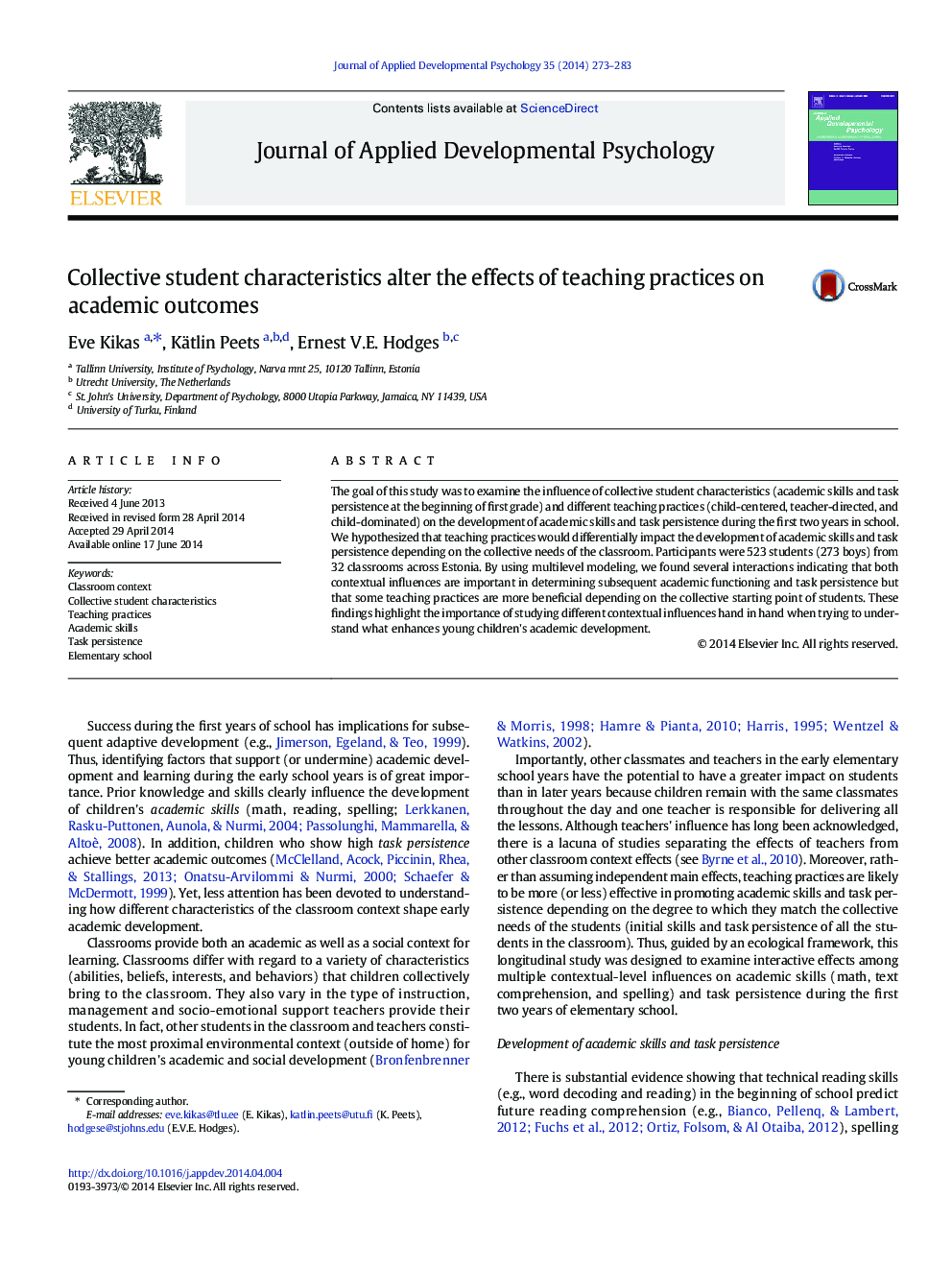| Article ID | Journal | Published Year | Pages | File Type |
|---|---|---|---|---|
| 359634 | Journal of Applied Developmental Psychology | 2014 | 11 Pages |
•We examined contextual influences on children's academic skills and learning behavior.•The effect of teaching practices was dependent on the classroom academic context.•Child-centered approach was beneficial in classrooms with high levels of task-persistence.•Child-dominated approach was detrimental in classrooms with low levels of skills.•Our results suggest moving beyond main-effect models of contextual influences.
The goal of this study was to examine the influence of collective student characteristics (academic skills and task persistence at the beginning of first grade) and different teaching practices (child-centered, teacher-directed, and child-dominated) on the development of academic skills and task persistence during the first two years in school. We hypothesized that teaching practices would differentially impact the development of academic skills and task persistence depending on the collective needs of the classroom. Participants were 523 students (273 boys) from 32 classrooms across Estonia. By using multilevel modeling, we found several interactions indicating that both contextual influences are important in determining subsequent academic functioning and task persistence but that some teaching practices are more beneficial depending on the collective starting point of students. These findings highlight the importance of studying different contextual influences hand in hand when trying to understand what enhances young children's academic development.
